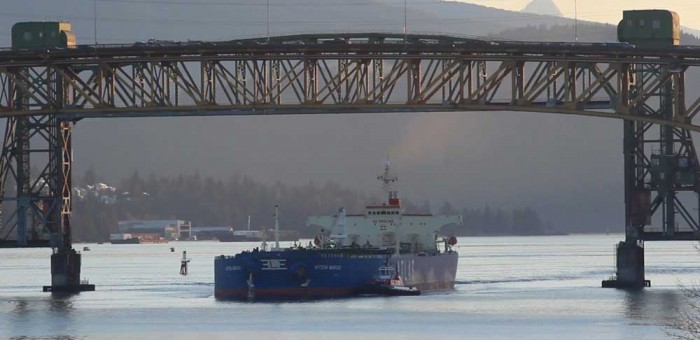NEB Denies My Motion for More Adequate Answers
For more than a year now, I have been trying to get Trans Mountain to answer my questions on their pipeline proposal. As an intervenor in the National Energy Board (NEB) hearings, getting answers to questions is an essential prerequisite to offering an informed argument on whether the pipeline should be built or not.
Sadly, today I learned that the NEB has fully denied my second and final opportunity to get answers to essential questions. What is even more troubling is that I’m not alone.
Collectively, intervenors challenged 1,291 of the roughly 5,700 questions posed to Trans Mountain during the second round of information requests. Of those 1,291 questions, the National Energy Board only ruled in intervenors’ favour 32 times. Put another way, the NEB ruled in Trans Mountain’s favour 97.6% of the time.
Personally, I submitted nearly 100 questions this round and challenged 24 of the answers I received.
To be clear, I was not challenging unsatisfactory answers, or answers I disagreed with. There were many cases where I disagreed with the response that was given, but still received an answer.
Instead, I was challenging answers that simply did not respond to my questions.
Here’s an example:
One of my biggest concerns is that, from the information I have seen, we currently have no capacity to recover sunken or submerged oil. That means that if an oil spill were to occur, and the oil were to sink, we would have no way to clean it up.
For me, this is the line in the sand. We should not be transporting heavy oils along our coast if we cannot clean them up when they sink.
I therefore asked Trans Mountain to provide a list of all equipment owned and operated by Western Canada Marine Response Corporation (WCMRC – the organization that is contracted to respond to oil spills along the B.C. coast) that can be used to recover sunken oil.
In response, Trans Mountain acknowledged that heavy oils can sink under certain circumstances, but failed to provide the requested list. I noted this when I challenged the response, and asked that Trans Mountain provide the requested list. Once again, they did not.
After a back-and-forth, the NEB then gave the following ruling:
Deny – Motion sought information that Trans Mountain is not responsible for, or which is the responsibility of another body (e.g., regulator, tanker operators).
Deny – Motion sought information that may touch upon the List of Issues, but would not contribute to the record in any substantive way and, therefore, would not be material to the Board’s assessment. In some instances, the request was unreasonable or overly broad in scope.
How the NEB can feel that a basic question about WCMRC’s capacity to respond to sunken oil “would not contribute to the record in any substantive way” is beyond me. In my mind, that is one of the most fundamental questions to the whole hearing process. Can we clean up a heavy oil spill? And if we don’t know what equipment WCMRC has, how can we know if we can clean up a spill?
But here’s the other problem:
The NEB has ruled that Trans Mountain isn’t responsible for providing information on behalf of WCMRC. Yet, WCMRC isn’t directly involved in the hearing process. So we have a situation where we cannot get the information on record from Trans Mountain, but we also cannot get the information on record from WCMRC within the formal hearing process.[1]
This brings me back to the essential question: How can the NEB truly evaluate Trans Mountain’s ability to respond to a spill when they seem to have created a situation that denies the Board, and intervenors, the ability to get the information we need?
[1] It should be noted that WCMRC did take the time to meet with my staff and were incredibly helpful. They spent several hours going through their oil spill response plan and answering our questions. However, since that meeting occurred outside the parameters of the hearing process, the information they provided is not necessarily on record within the formal hearings and therefore cannot be considered by the National Energy Board.





2 Comments
Hey Andrew, curious to know if the WCMRC did have any way of cleaning up submerged oil?
They presently have no way at all.